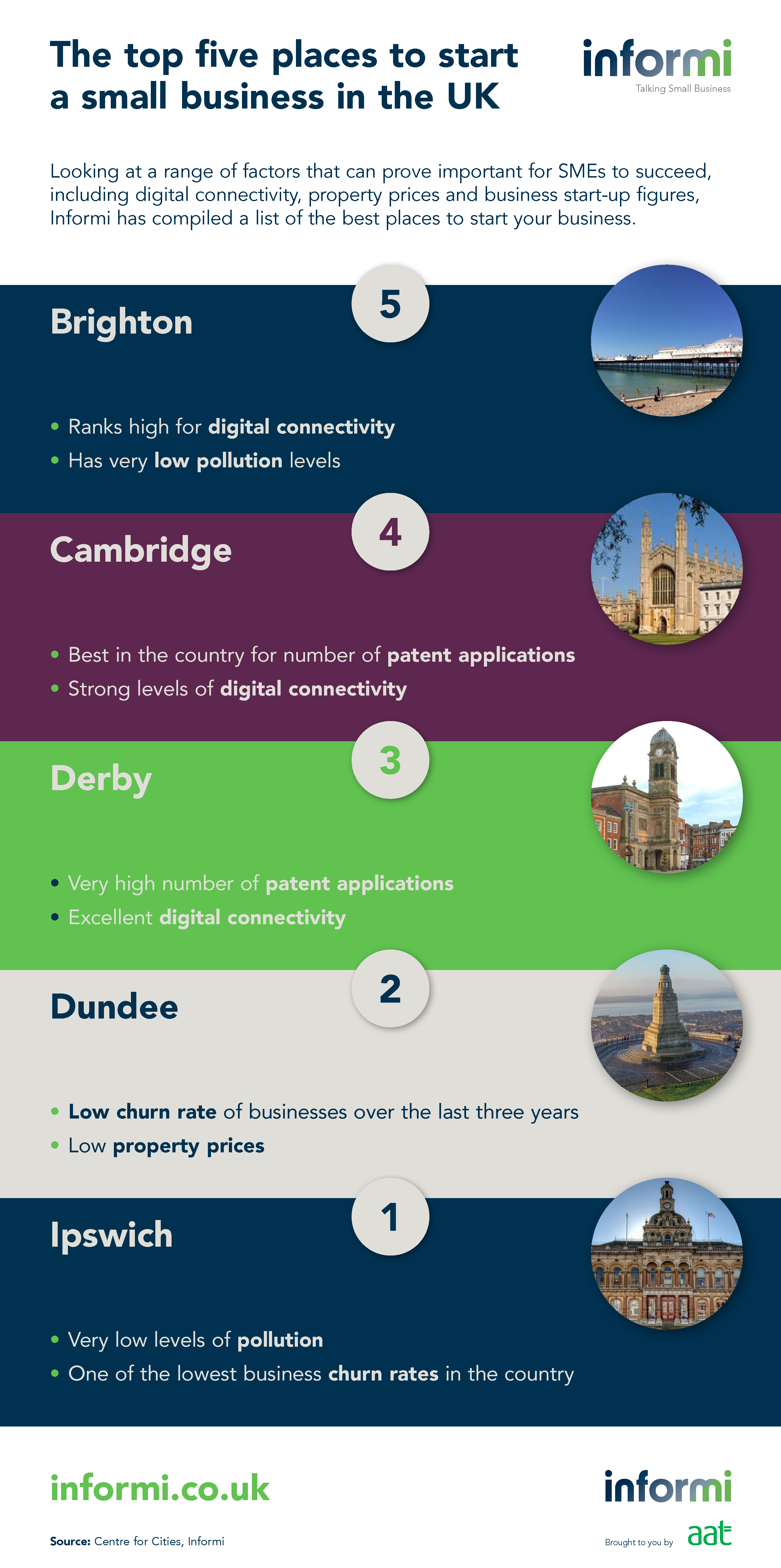If you’re just looking at startup numbers, there’s never been a better time to start a business. In 2016, more than 650,000 new businesses were registered with Companies House, the highest figure ever, demonstrating that Britain’s famous entrepreneurial spirit is alive and well.
The majority of new businesses, unsurprisingly, are started in London. The capital offers great opportunities for business growth and expansion, with millions of customers on the doorstep and several open gateways to the international market.
But does this make London the best place to start a business in the country? Not according to new research from Informi, published this week. We studied the latest publicly available information from the 63 largest UK towns and cities, focusing on a variety of factors that can prove important for small and medium-sized businesses (SMEs) to thrive.
These factors include business startup and closure figures. We also awarded points for locations with high superfast broadband supply, low pollution, and low property prices – all of which help to create a favourable environment for startups.
Having pulled all this data together, we were able to compile our list of best places to start a new business in 2017. Here’s the top five:

Ipswich – the town that takes the crown
Taking top spot from 2016 champions Brighton, Ipswich is the best place to start a new business in 2017. The town’s strong performance was largely due to low CO2 emissions, a low churn rate of businesses over the last three years, and strong levels of digital connectivity.
In a category dominated by seaside locations, Ipswich emitted just 3.71 tonnes of CO2 emissions per capita during 2014, coming behind only Chatham and Luton. Middlesbrough and Swansea were the worst culprits in this area, with emissions of 26.22 and 26.78 tonnes respectively.
Ipswich’s business churn rate – the rate at which new businesses have opened minus the rate at which they have closed over the past three years – was the sixth lowest in the UK, suggesting that businesses are given strong opportunities in the town to be established and sustainable. Only Aberdeen, Exeter, York, Dundee and Plymouth had a lower churn rate than Ipswich between 2012 and 2015.
Ipswich also appeared sixth on the list for the percentage of properties covered by ultrafast broadband, rising ten places in this category from the previous year. Some 89.82% of properties are covered in the town, only beaten by Worthing, Luton, Cambridge, Brighton, and Plymouth.
How did the capital perform?
When it comes to business startups, London comfortably leads the way. 112.36 businesses were started per 10,000 people in the capital during 2015, well ahead of nearest challengers Northampton (100.45).
However well London performs when it comes to startups, it does just as badly for business closure levels. There were 64.2 closures per 10,000 people in 2015, showing that the capital provides the most volatility for businesses, with thousands of success and failure stories. Belfast, in contrast, had just 16.7 closures per 10,000 population in the same period.
Not forgetting house prices…
And finally, of course, London came bottom of our league tables when it came to finding small businesses affordable properties along with places to live for their employees. The mean house price in London has hit £561,436.60. At the other end, in Burnley, the average house only just sets you back six figures at £102,596.86.
Expensive houses and business property rents can be an extreme setback for small business owners looking to get their company up and running. In an increasingly digital age, many entrepreneurs will be wondering whether they even need to have a potentially expensive property at all.












